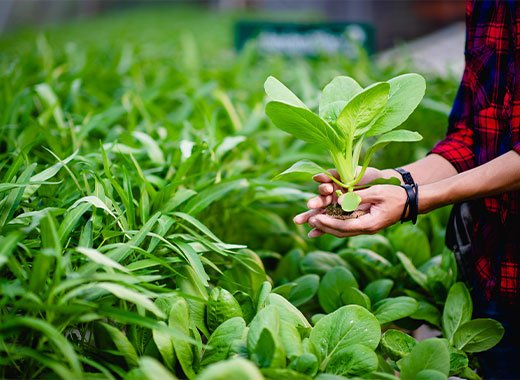
Organic farming is a farming practice that emphasizes the use of natural inputs and methods to enhance soil fertility, conserve biodiversity, and promote sustainable agriculture.
In India, the government provides organic farming subsidies to farmers to promote the adoption of organic farming practices. The subsidies offered include financial assistance for inputs, such as organic manures, bio-fertilizers, and organic pesticides, as well as for the cost of certification.
The government offers various schemes and subsidies for organic farming, such as the Paramparagat Krishi Vikas Yojana, Organic Value Chain Development for North Eastern Region, and National Mission for Sustainable Agriculture. These schemes aim to promote organic farming practices and provide financial assistance to farmers for the adoption of organic farming techniques.
The subsidies offered for organic farming can cover up to 100% of the cost of inputs and certification, and the focus is on promoting the use of organic inputs and techniques to enhance soil health and productivity, reduce the use of chemical fertilizers and pesticides, and promote sustainable agriculture. The government’s focus on promoting organic farming subsidies is aimed at promoting sustainable agriculture practices, reducing the adverse impact of chemical fertilizers and pesticides on the environment, and improving the health of farmers and consumers.
However, there have been concerns about the availability and quality of organic inputs, the high cost of certification, and the need for proper regulation and monitoring of organic farming practices. The government has been working to address these concerns and promote the adoption of organic farming practices through various schemes and initiatives.
How to apply?
Farmers who are interested in availing organic farming subsidies in India can follow the below-mentioned steps:
- Identify the scheme: The farmer needs to identify the appropriate scheme for organic farming subsidies based on their location and requirements.
- Register with the concerned authority: The farmer needs to register with the concerned authority, such as the State Department of Agriculture, State Horticulture Department, or National Horticulture Board, to avail of the subsidies.
- Fill in the application form: The farmer needs to fill in the application form with the necessary details such as name, address, landholding details, and the proposed plan for organic farming.
- Provide documents: Farmers need to provide documents such as identity proof, land ownership proof, and bank details, along with the application form.
- Submit the application: After filling in the application form and attaching the required documents, the farmer needs to submit the application to the concerned authority.
- Await verification: After submitting the application, the concerned authority will verify the details provided by the farmer and conduct a site inspection to ascertain the eligibility.
- Receive approval: Once the application is verified and approved, the farmer will receive an approval letter stating the amount of subsidy and the terms and conditions of the scheme.
- Avail of the subsidy: The farmer can then avail of the subsidy by purchasing the organic inputs and implementing the proposed plan for organic farming.
Important!
It is important to note that the exact process for applying for organic farming subsidies may vary depending on the scheme and the concerned department or agency. Therefore, it is advisable to check the official website of the department or agency or contact the concerned authority for more information.
The Government of Gujarat in India provides organic farming subsidies to farmers under various schemes such as the Paramparagat Krishi Vikas Yojana and the Gujarat Horticulture Mission, to promote the adoption of organic farming practices, provide financial assistance for inputs and certification, and promote sustainable agriculture.
The Government of India provides organic farming subsidies to farmers under various schemes such as the National Mission for Sustainable Agriculture, and Organic Value Chain Development for the North Eastern Region to promote the adoption of organic farming practices and provide financial assistance for inputs and certification.